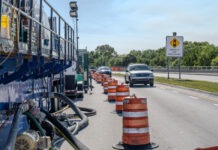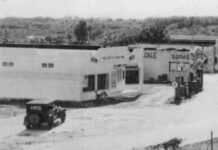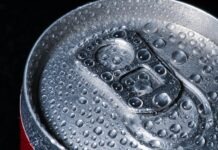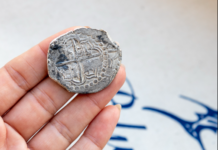By Brynn Morey
America Recycles Day is a Keep America Beautiful initiative that’s dedicated to promoting and celebrating recycling in the United States.
Each year on Nov. 15, enthusiasts focus on educating neighbors, friends and colleagues on the importance of recycling. When inspiring others to recycle, it is important to know the recycling information for your county. I have taken some time to research and gather helpful information on proper recycling techniques in Monroe County.
Did you know? In 2021, unincorporated Monroe hauled 8,900 tons of recyclable items up to the mainland to be recycled. Recyclables are taken to a single-stream center, which is why patrons do not have to separate or sort the items. Paper, aluminum, plastic, etc. can all go into the same receptacle labeled with the word recycling or the recycle symbol. Recycled material from Monroe, Miami-Dade, Broward and Collier counties is processed and sorted at the same site, then put into bales and shipped to companies that buy recycling.
Recycling can be very confusing at times. Many people find it challenging to know exactly what can and can’t be recycled and how to prepare items for recycling. An easy way to remember this is if the body of the plastic container is larger than the neck, it is recyclable. Remove and discard any pumps attached to bottles due to the metal and clean all food residue from containers. If you are ever in doubt, throw it out. The list below indicates what items can be recycled and how to prepare them for the recycle bin:
∙ Cans (aluminum, steel) – empty and rinse
∙ Food and beverage cartons – empty and replace cap
∙ Glass bottles and jars – empty, rinse and replace cap
∙ Paper (mixed paper, magazines, newspaper, flattened cardboard)
∙ Plastic bottles and containers (1-5) – empty and replace cap
Many different items cannot be recycled at the actual facility; however, there are other ways to recycle/reuse these items. The list below indicates items that cannot be recycled in Monroe County.
∙ Plastic grocery bags – these can be taken back to the grocery store
∙ Food waste – try composting
∙ Styrofoam – avoid using
∙ Furniture (even plastic furniture)
∙ Clothing or linens – donate these items
∙ Garden hoses, hangers and electric wires
∙ Pots and pans – donate these items
∙ Yard waste – collected separately and taken to a facility for composting
∙ Hazardous materials such as chemicals, propane tanks, batteries, paint – these can be taken to hazardous waste collections within the county. For information on these collection sites follow the link below: https://www.monroecounty-fl.gov/239/Household-Hazardous-Waste-E-Waste
Top 5 Myths About Recycling
- Recyclables need to be washed. Recyclables need to be emptied; if they are soiled a quick rinse will suffice.
- Doesn’t it take more energy to drive recyclables around? Even with transportation, recycling saves energy. Recycling also reduces the creation of greenhouse gases, generates U.S. jobs, and saves natural resources.
- Pizza boxes are not recyclable. Make sure to remove the parts of the box that have grease, cheese or crusts and recycle the clean parts of the cardboard.
- Caps on plastic bottles are not recyclable. The caps on bottles are recyclable. Remember to replace caps after emptying containers.
- If something has recycling arrows on it, it’s recyclable. Not always.Monroe County recycles plastics with a number 1 through 5 within the recycle arrows.
A special thanks goes to Melody Tuschel, Monroe County recycling coordinator & outreach who consulted on this article.

























